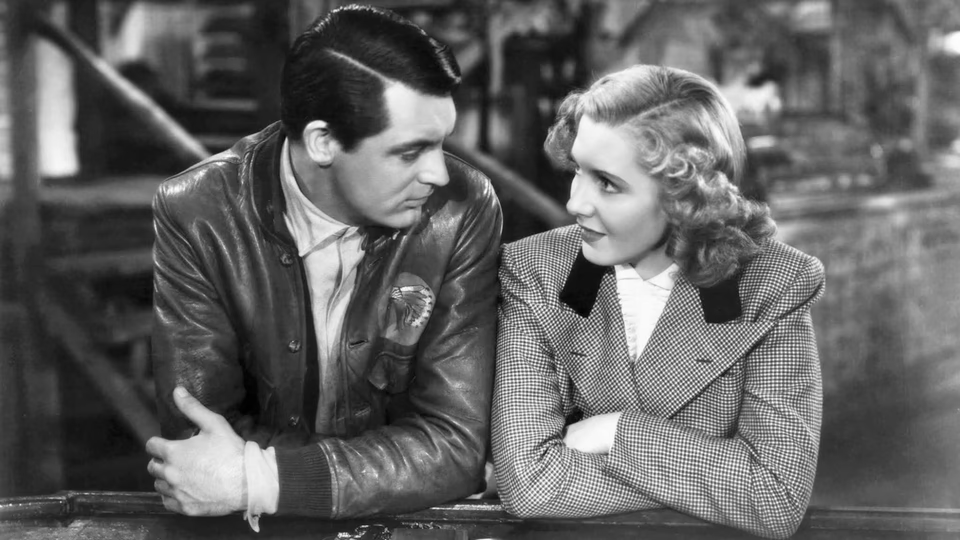Only Angels Have Wings

In Howard Hawks’ Only Angels Have Wings, the director returns to familiar territory—men facing death with professional detachment—but refines his vision with a maturity that elevates this tale of mail pilots above mere adventure.
The story is deceptively simple. Jean Arthur plays Bonnie Lee, a showgirl who finds herself stranded in a fog-bound South American port, where she encounters Cary Grant’s Geoff Carter and his crew of flyers who risk their necks threading mail planes through a treacherous mountain pass. What emerges is less a romance than a meditation on duty, loss, and the codes men live by when tomorrow is never guaranteed.
Grant delivers one of his most subtly commanding performances as Carter, the air service chief whose magnetic confidence masks deep wells of pain. Hawks wisely abandons an early costume misstep—an absurd white planter’s hat—in favor of the fedora and leather jacket that, along with Grant’s natural swagger, prefigures Indiana Jones by four decades. But it’s Grant’s restraint that impresses most. He doesn’t overplay the stoicism; instead, he lets us glimpse the hurt beneath the bravado, making Carter’s burden feel authentic rather than manufactured.
Where the film falters is in its leading ladies. Arthur’s performance feels transported from a different film altogether. Her wide-eyed reactions and aw-shucks delivery clash with the film’s weathered authenticity. When we see what Hawks would later achieve with Lauren Bacall or Angie Dickinson—actresses who could match his heroes’ stoic cool—Arthur’s limitations become glaring.
Rita Hayworth as Grant’s former flame shows more promise but lacks the self-assurance her character initially demands. That her performance improves as her character’s confidence crumbles suggests Hayworth understood the destination better than the journey.
That Only Angels Have Wings overcomes these weaknesses testifies to Hawks’ mastery and his extraordinary supporting cast. Thomas Mitchell had a year of years in 1939 (he also delivered a career-highlight role as an alcoholic doctor in John Ford’s Stagecoach) and here he brings an understated gravity to his role as “The Kid,” an aging pilot beloved by all. His scenes with Grant—particularly their final exchange—exemplify Hawks’ primal understanding of male bonding and how what remains unsaid often matters more than what’s spoken.
Indeed, Hawks has always been fascinated with professional competence under pressure, and here he achieves something approaching perfection in his portrait of male camaraderie. These men don’t speechify about loyalty or courage; they simply embody these virtues through action and understatement. When death claims one of their own, they grieve briefly, then return to work—not from callousness, but from necessity and respect for the fallen.
The film’s recurring motif of “Who’s Joe?” becomes a haunting reminder of mortality’s proximity. Yet Hawks never wallows in tragedy. Like his characters, he faces loss with clear-eyed acceptance, understanding that in certain professions, death isn’t a failure but an occupational hazard.
Only Angels Have Wings represents Hawks in his element, crafting a masculine world where actions speak louder than words and where the highest compliment is being asked to stay. He makes us believe in and care about these men who gamble their lives daily for something as mundane as delivering the mail because, ultimately, it’s a film about the codes we live by and the prices we pay for them—themes that would resonate through Hawks’ career from The Dawn Patrol to Rio Bravo. In an era of overwrought melodrama, Hawks offers something rarer: gut-punch emotion earned through restraint.